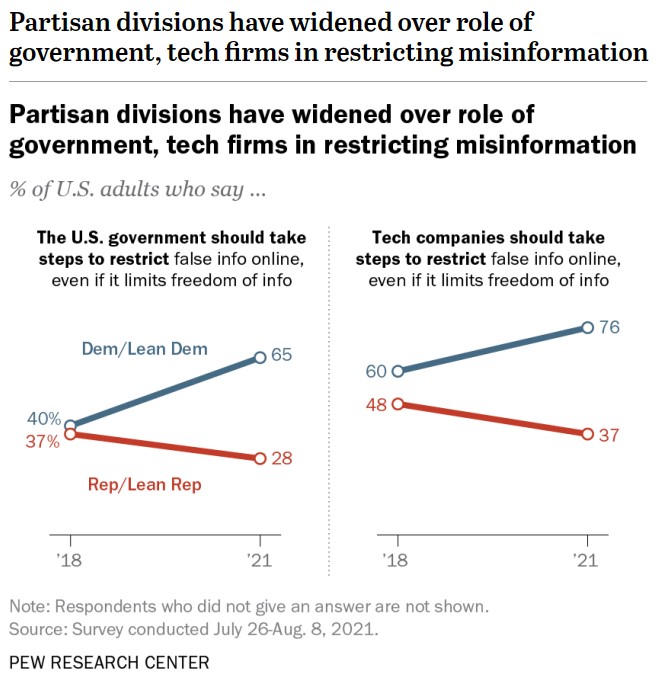
Why are the “most educated” suddenly the most afraid of information liberty?
Observing that a significant majority of Americans now believe the COVID lab-leak theory despite the idea’s having recently been banned on “Big Tech platforms,” Glenn Greenwald recalls a 2021 Pew Research finding that over a mere three-year span the percentage of Democrats who support big-tech censorship had grown from 60% to 76%, and (worse, in my book) their support for government censorship had increased from 40% to 65%.

This relates to a p0int I’ve been making frequently over the past few years, particularly with reference to local news media: Journalists and others have given themselves permission to deliberately ignore views that conflict with their own, which generally means those that conflict with radical progressivism.
To see my impression reflected in the data, scroll down to Pew’s table of results for different demographic groups. Arguably the most shocking trend in the data is the increase of support for censorship among those with at least a college degree. They went from the least likely to support censorship to the most. When it comes to big-tech censorship, this group went from 53% support for censorship to 61%, 2018 to 2021. And terrifyingly, support for government censorship among the college educated jumped from 30% to 51%.
This trend, if it isn’t a quirk of the unusual COVID-Trump period, is a massive red flag warning of the end of our civilization. Not only does it indicate systemic indoctrination of American youth, but the particular form of that indoctrination is particularly toxic. The people who should be the most comfortable analyzing information believe one of two propositions, or both: Either they, for all their education, do not think they can determine when they can trust the information they find, but that experts in the government can do that work for them, or they do not trust their fellow Americans to make up their own minds and feel it is government’s role to manipulate them.
Well-meaningly, of course.
Featured image from Shutterstock.
